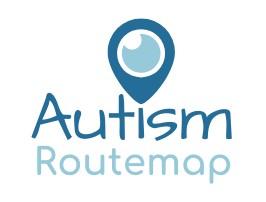To disclose or not disclose. What’s in the decision?

Have you ever watched one of those high-speed videos which shows the artist painting a picture from beginning to end? For a while, all the splodges and colours make no sense. Then at some point, there’s enough detail and you get it. You can finally see the beautiful animal, sunset or person that flows from the artist’s fingertips.
Our lives are a lot like that. Most people only see a few of the lines and splodges that make up who we are. They don’t have the full picture. And as a result, they only know us in part.
Disclosure of an autism diagnosis is about letting people see more of the real you. Letting them know who you are instead of concealing your true self.
But disclosure can feel very daunting and for good reason. People’s experiences are mixed and to make matters worse, there are no cut and dried rules to follow. Because everyone’s circumstances vary, it’s an individual decision for each person to make. But that doesn’t mean you have to decide on a whim. There are things to take into consideration.
So with that in mind, let's look at the benefits as well as the reasons you might hold back?
Reasons for disclosure
- A key reason for disclosure is that it brings understanding which enables the people around you to better accommodate your needs.
- In a work situation, disclosure enables you, for example, to explain your sensory issues, challenges with attending social events or the reason behind your need for routine. It gives you a framework for sharing how autism impacts you.
- Another benefit of disclosure at work is that it gives you access to “reasonable adjustments” which improve the work experience. You may, for example, want to move your desk to a quieter area or have the fluorescent lighting replaced with a lamp or a softer lightbulb. You might want to discuss the option of working from home or reducing the number of meetings you attend.
- Access to accommodations also applies to students seeking support at university or college.
- In all areas of life, disclosure helps people to understand you and goes a long way to avoiding misunderstanding and negative judgement.
- Another advantage is that disclosure removes or reduces the need to mask. People often report feeling less pressure and stress once others understand where they’re coming from.
Reasons against disclosure
- Autistic people often choose not to disclose for fear of negative consequences. Not everyone will understand or respond positively when told.
- Some people may treat you differently when they discover you have a diagnosis. Others may not believe that you have a diagnosis - perhaps because you are doing such a good job of masking!
- There are risks of friends or family members sharing your diagnosis when you would have preferred for it to be confidential.
- Autistic people sometimes worry that others will think they are making excuses or seeking preferential treatment because of their diagnosis.
- And then there is the issue of your career. Disclosing in an interview could prejudice the interviewer and reduce the likelihood of you being offered the position. Others fear that it will jeopardise the chances of promotion at work.
So those are a few of the reasons both for and against disclosure. Some other things to take into consideration when deciding whether or not to share your diagnosis with others is:
- In the UK, you do not need to disclose an autism diagnosis to your employer – at the interview stage or beyond. You will, however, need to let employers know if you want access to reasonable adjustments.
- Consider the people you are talking to. Do you have a good relationship with them? Are they the kind of people who show sensitivity and acceptance of diversity? How do they react to others from different backgrounds, abilities, cultures or genders?
- It is not necessary to disclose in the early stages of a relationship (at work or with friends / family) but it may be beneficial to the relationship once you know them better. It’s also possible that they are already aware!
- If you are able to do your job without the need for any reasonable adjustments, then you may have little reason to disclose at work.
After all is said and done, a healthy dose of knowledge and wisdom is needed when deciding whether or not to disclose. Because as someone wise said, “knowledge is knowing what to say and wisdom is knowing when to say it”.
To the combination of knowledge and wisdom!
Linda Philips
MSc. Human Communication
Autism Routemap supports autistic and neurodivergent people with coaching and training to improve communication, people skills and emotional well-being. Interested in knowing how we can help?
Contact [email protected] or book a free Turning Point call here.

